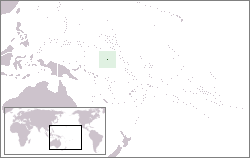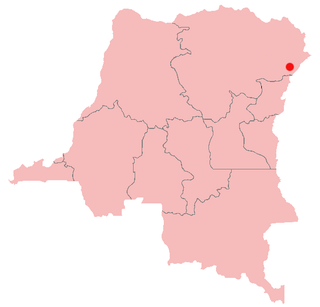
The member states of the United Nations comprise 193 sovereign states. The United Nations (UN) is the world's largest intergovernmental organization. All members have equal representation in the UN General Assembly.

A United Nations Security Council resolution (UNSCR) is a United Nations resolution adopted by the Security Council (UNSC), the United Nations (UN) 15-member body charged with "primary responsibility for the maintenance of international peace and security".
A United Nations General Assembly resolution is a decision or declaration voted on by all member states of the United Nations in the General Assembly.

The United Nations Mission in Ethiopia and Eritrea (UNMEE) was established by the United Nations Security Council in July 2000 to monitor a ceasefire in the border war that began in 1998 between Ethiopia and Eritrea. First military troops Netherlands - Canadian battalion 'NECBAT' arrived and established bases in the region in December 2000.

United Nations Security Council Resolution 339 was adopted on 23 October 1973 in order to bring a ceasefire in the Yom Kippur War where Resolution 338 two days before had failed.

United Nations Security Council Resolution 1695, adopted unanimously on July 15, 2006, banned the selling of material that would further the ability of the Democratic People's Republic of Korea to bolster its ballistic missiles programme. Resolution 1695 was adopted after recalling resolutions 825 (1993) and 1540 (2004) concerning North Korea and the non-proliferation of weapons of mass destruction, respectively.

United Nations Security Council Resolution 85, adopted on July 31, 1950, was the United Nations Security Council resolution which authorized the United Nations Command to support the Korean civilian population, and requested that specialized agencies, appropriate subsidiary bodies of the UN and appropriate non-governmental organizations support the UN Command in doing so. It was adopted at the 479th meeting after United Nations Security Council Resolution 84 was passed creating the unified command.

United Nations Security Council Resolution 83, adopted on June 27, 1950, determined that the attack on the Republic of Korea by forces from North Korea constituted a breach of the peace. The Council called for an immediate cessation of hostilities and for the authorities in North Korea to withdraw their armed forces to the 38th parallel. They also noted the report by the United Nations Commission on Korea that stated North Korea's failure to comply with Security Council Resolution 82 and that urgent military measures were required to restore international peace and security.

The United Nations Mission in East Timor (UNAMET) was established by Security Council Resolution 1246 on 11 June 1999 for a period up to 31 August 1999. By Security Council Resolution 1257 of 3 August UNAMET was extended to 30 September 1999.

The African Union-United Nations Hybrid Operation in Darfur was a joint African Union (AU) and United Nations (UN) peacekeeping mission formally approved by United Nations Security Council Resolution 1769 on 31 July 2007, to bring stability to the war-torn Darfur region of Sudan while peace talks on a final settlement continue.

United Nations Security Council Resolution 135, adopted on May 27, 1960, after a failed meeting between the Heads of State of France, the Union of Soviet Socialist Republics, the United Kingdom and the United States, the Council recommended those governments seek solutions of existing international problems by negotiation or other peaceful means as provided in the Charter of the United Nations. The resolution pleaded with them to refrain from the use of threats of force, to seek disarmament in accordance with United Nations General Assembly Resolution 1378, to discontinue all nuclear weapons tests and to avail themselves to the assistance of the council and any other appropriate UN organs to render these ends.

The United Nations Mission in the Central African Republic and Chad (MINURCAT) was a United Nations peacekeeping mission established by the United Nations Security Council on September 25, 2007 to provide a multidimensional presence of up to 350 police and military personnel to eastern Chad and north-eastern Central African Republic

United Nations Security Council Resolution 303, adopted on December 6, 1971, after a lack of unanimity at the 1606th and 1607th meetings of the Council prevented it from exercising its primary responsibility, the Council decided to refer the question to the General Assembly.

United Nations Security Council Resolution 1908, adopted unanimously on January 19, 2010, after endorsing the Secretary-General's recommendation, the Council increased the size of the United Nations Stabilization Mission in Haiti (MINUSTAH) established under Resolution 1542 (2004), in the aftermath of the 2010 Haiti earthquake. The resolution authorised an additional 3,500 peacekeepers for Haiti, bringing the total number of MINUSTAH troops to 8,940 and a police component to 3,711.

United Nations Security Council Resolution 989, adopted unanimously on 24 April 1995, after recalling Resolution 955 (1994), the council listed the nominations for judges at the International Criminal Tribunal for Rwanda.

United Nations Security Council resolution 1249, adopted on 25 June 1999, after examining the application of the Republic of Nauru for membership in the United Nations, the Council recommended to the General Assembly that Nauru be admitted, bringing total membership of the United Nations to 187.

United Nations Security Council Resolution 1484, adopted unanimously on 30 May 2003, after recalling previous resolutions on the situation in the Democratic Republic of the Congo, the Council authorised Operation Artemis in Bunia, the capital of Ituri Province, amid the deteriorating security situation in the area.

United Nations Security Council Resolution 1592, adopted unanimously on 30 March 2005, after recalling all previous resolutions on the situation in the Democratic Republic of the Congo, including Resolution 1565 (2004), the Council extended the mandate of the United Nations Mission in the Democratic Republic of Congo (MONUC) until 1 October 2005.
The Declaration on the Rights of Peasants is a United Nations General Assembly resolution on human rights with "universal understanding", adopted by the United Nations in 2018. The resolution was passed by a vote of 121-8, with 54 members abstaining.














